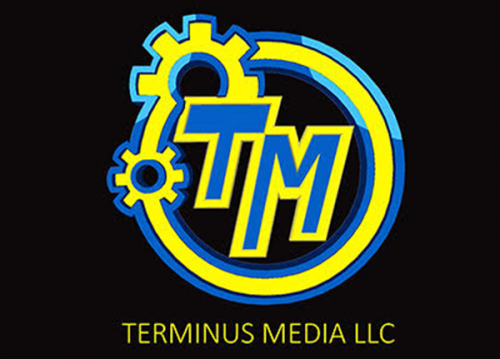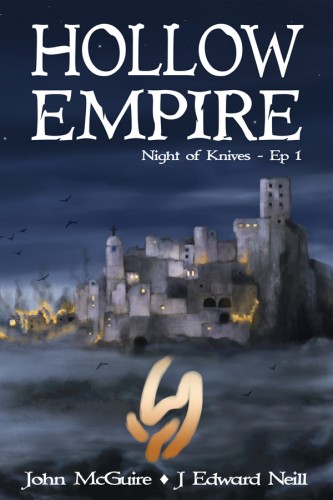Every day that I keep at this – the writing, the editing, the story-telling – I’m hopefully getting a little better. But much like an athlete who trains by themselves, eventually they must turn to others in order to truly gauge how good they are, where their deficiencies might lie, and what things they can do to simply improve overall. They say you can never improve unless you are playing with people who are better than you are.
It’s not that much different on the writing side. Except that writing lends itself more to the solo aspect. You could go days or weeks or months without any feedback on the next project you’re writing. The only comfort you gain is knowing the story is progressing. That, too, can be just as maddening.
I think it is why I not only like to collaborate, but I seem to seek out such opportunities whenever I can.

During the earliest days of Terminus Media, when it was just a group of 5-6 guys trying to figure the whole “writing” thing out. Times where we might not even know what we did not know. Every week was a new potential project, every week was a new idea presented by someone at the table, and we did our best to foster that sharing. You could see where other people were having problems, and hopefully, not make the same mistakes on your own work (you inevitably did, of course).
I started to learn how to accept (constructive) criticism by sharing my words with others. I learned that the best way to learn was to DO the work. If there was a project that needed something written, the following week was spent figuring out how to actually write a short film script, or a TV script, or a comic script.
One week I had no idea and the next, knowledge replaced the nothingness.

Years later, Mr. Neill and I were talking about a serialized possibility. Here we both were trying to finish novels or start new ones, but there was something about getting our heads together and seeing what could happen.
Hollow Empire happened.
The biggest benefit, unseen by me (and probably cursed by Jeremy later) was editing. You effectively add a partner in this realm as well. Hopefully their strengths can fix your weaknesses and vice versa. Perhaps you are a little too sparse in your descriptions and your partner too sparse on the dialogue – now’s the perfect opportunity to learn from each other.
In those first drafts, which Jeremy edited to the bone, my prose got a little tighter. When I got new chapters in from him, it forced me to push to get better. I wanted him to be excited when my emails came rolling in. We all need to be pushed. Having a partner, someone you are accountable to, means that when you aren’t hitting your deadlines then you’re letting someone else down. Building the world through these characters in a way that makes the whole work really about those characters more than about the “Big Events” which may be going on around them.
Getting better with every keystroke.

In the last couple of years, I’ve worked with Robert Jeffrey on a pair of projects. Each of us bringing some ideas to the table and we settled on one idea from each list: The Crossing & Entropy.
The thing is that with another head there, you obviously have double the potential ideas. However, you are really forced to push your own ego aside… for the betterment of the story. When it is only you, it means a singular vision, but it also means you’re pretty much confined to whatever the old brain comes up with. With another person contributing ideas, you have more opportunities to find the best idea. You’re no longer insular… BUT you have to be willing to allow the other person to have that idea. If you are the type of writer who can’t deal with writing “someone else’s story” then you might as well stay a solo act.
To live in someone else’s world where much of the original idea was someone else’s, but you could still be a cog in the machine and help it get further than it could have done on their own. The ability to make something better than one person simply through the ideas being shared and passed back.
But the best part is being able to lean on someone else to help carry a bit of the workload. And when Writer’s Block threatens to show up, you simply give your co-writer a call or email. That way they can talk you off the ledge, getting you back to work all the sooner.
The dirty secret about all of this, whether it is short stories, novels, comics, film, or whatever… it doesn’t have to be such a lonely pursuit. You DON’T HAVE to go it alone. You can help your fellow creators, and they can help you as well.
Hopefully each learning a little bit more through the experience.
***
John McGuire is the author of the supernatural thriller The Dark That Follows, the steampunk comic The Gilded Age, and the novella There’s Something About Mac through the Amazon Kindle Worlds program.
His second novel, Hollow Empire, is now complete. The first episode is now FREE!
He also has a short story in the Beyond the Gate anthology, which is free on most platforms!
And has two shorts in the Machina Obscurum – A Collection of Small Shadows anthology! Check it out!
He can also be found at www.johnrmcguire.com.





